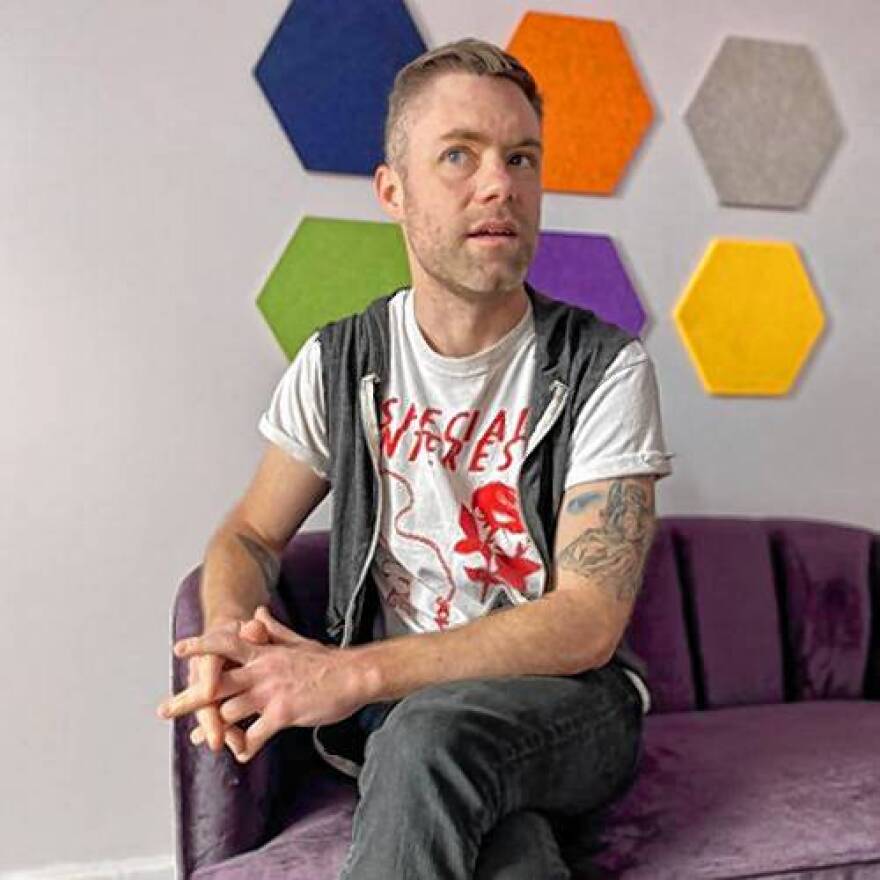Amherst, Massachusetts’ new town department – Community Responders for Equity, Safety and Service (CRESS) – has a new director this week.
The department joins several other initiatives in western Massachusetts that offer alternatives to police when a call involves a mental health crisis.
CRESS will send responders trained in mental health to many 911 calls currently handled by the police.
Director Earl Miller said they will work directly with emergency dispatchers, and not under the police.
“There is nobody between us and the folks but a phone call that is a novel idea,” Miller said. “They give this department enough autonomy to stake its claim on what it sees as its role.”
Miller lives in Westfield and grew up in Holyoke. He recently worked as the western Massachusetts recovery director for the state Department of Mental Health. Before that, he was a peer specialist for community-based mental health programs.
Miller said his background as a Black man who’s been homeless, frisked by police, and picked up by ambulance during a mental health crisis helps him truly understand the need for alternatives to police.
“How different could those experiences have been if the person who responded really understood what the implications of being stopped were?” Miller said. “And also, like, basic needs: [In] so many of those experiences, nobody asked me if I was hungry or felt safe where I lived or any of those other things.”
Northampton is creating a similar department with a similar focus on hiring people with lived experience.
Sean Donovan is overseeing the launch of the city’s Department of Community Care.
“I'm someone who's been institutionalized for things that led me to psychiatric care, which hasn't always been helpful,” Donovan said. “It's been harmful sometimes.”
To avoid escalating situations, Donovan said he will prioritize hiring responders who have a personal history of mental health struggles, rather than clinical training.
“We’re not going to require a degree,” he said. “Sometimes it takes undoing some of those things to make someone more adept at responding to crises.”
While both Amherst and Northampton are creating standalone departments, the region already has in place another model for addressing mental health emergencies. It’s called “co-response,” where a mental health clinician goes out on crisis calls with a police officer.
Behavioral Health Network does co-response with several Hampden County police departments, including Springfield, Chicopee and Holyoke.
The nonprofit Clinical & Support Options (CSO) has state-funded contracts with police in Franklin and Hampshire Counties, including Greenfield, Montague, Hadley and Easthampton.
CSO’s coordinator, Jennifer LaRoche, said one goal is to avoid what’s called a Section 12, when someone is taken for a mental health evaluation against their will. That can be traumatic.
“We do not need to take them out of their home. We can set them up with services if they so choose. We can assess the situation and really determine what's really needed,” LaRoche said. “We have many other tools than just signing a Section 12.”
Unlike the plan for Amherst and Northampton, LaRoche said Clinical Support Options only sends out clinicians with masters-level degrees. She said they have diagnostic skills a layperson might not, especially if someone is having a psychotic episode.
“They're very agitated, they're very anxious, they're very uncomfortable. And they need some additional support,” LaRoche said. “Their peer may not be able to get them exactly what they need or be able to truly assess what's going on.”
But she agreed that lived experience is often critical to gaining trust with a person in crisis, whether or not the responder has a clinical degree.
As for whether to operate separately from the police, like the new standalone departments, LaRoche said some calls, such as domestic violence, can be very threatening, with weapons. Mental health workers might not be safe without an officer there.
That said, LaRoche looks at the range of models as a continuum — all of which serve a purpose.
“There's certain calls that can be handled by one group. There are certain calls that can be handled by another group,” LaRoche said. “And then there are calls where we may be working in tandem and working together to offer support to people in the community.”
The western Massachusetts co-response program is still considered a pilot, with a couple years left on the state grants.
Miller said Amherst’s new department — with an annual budget of about $1 million — hopes to have a team of eight responders hired in the next couple months.
Northampton won’t start hiring before the summer, after the next fiscal year starts in July. Donovan said the city has about $600,000 for the first year of planning and still needs to determine the cost going forward.
Copyright 2022 New England Public Media. To see more, visit New England Public Media. 9(MDExNDI3NjUzMDEzNjkzMTgzNTExNDFlYQ004))


